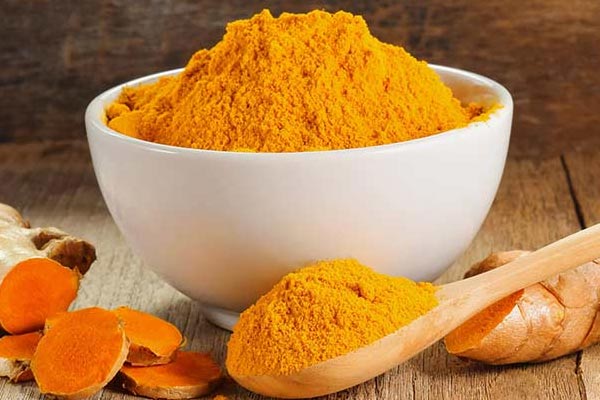Is Turmeric Good For Fibromyalgia?
Fibromyalgia is a kind of disorder which is characterized when a person has musculoskeletal pain with some other symptoms including mood swings, memory loss, fatigue and lethargy, and insomnia.
Fibromyalgia is the second most common condition which affects our bones and muscles.
This disease is often misdiagnosed and even misunderstood. The most common symptom of this disease is fatigue, muscle pain, and joint pain.
Although, there is no definite cure of fibromyalgia, a combination of medicines, exercising, a healthy way to manage stress, and good healthy eating habits may eradicate these symptoms assuring you can lead a normal life.
Some of the most common symptoms include:
- You have severe muscle pain, burning, itchiness, twitching or tightness.
- You feel weakness or lethargic in performing routine work.
- You have insomnia, or you cannot sleep well.
- You feel nervous, depressed, stressed or worried
- You have trouble concentrating and you forget stuff called as fibro fog
- You have tender points
- Frequent headaches
- The slow and confused state of mind and speech
- Extreme tiredness
- Insomnia
- Irritable bowel syndrome
- Migraines
- Sensitivity to pain, some foods and to smoke
Turmeric has natural anti-inflammatory, antioxidant and neuroprotective properties that can help greatly and benefit the one who has fibromyalgia.
Turmeric is a natural pain killer and so it has the ability to act upon various kinds of pains. As it is anti-inflammatory, it can kill pain to a great level.
The intake of turmeric can reduce the inflammation and the pains associated with fibromyalgia.
Turmeric consists of curcumin, which is found to be extremely beneficial in neuropathic pain.
Neuropathic pains occur due to damaged fibers which ultimately results in abnormal pains and being extremely sensitive to pain.
A study was conducted on the curcumin medicine known as Flexofytol, and it was given to those patients who had fibromyalgia.
When the results came, it was concluded that 41 patients out of a total of 62 had benefited from this medicine.
This proved hence, that turmeric has great benefits for fibromyalgia. This result indicated that for patients who had fibromyalgia, should take this tablet as it will give great relief to the pains.
With the curcumin treatment, it was observed that those patients who were experiencing fatigue, dizziness, muscle cramps, sweating, palpitation, migraines, headaches, shortness of breath and other fibromyalgia symptoms were greatly benefited.
The only side effects which were taken in to notice was the great difficulty in swallowing the tablets and diarrhea.
For diarrhea, it was recommended to intake a good quality of water supply and the patients were satisfied.
The research also led to this result that the use of Felxofytol not only benefited the patients with fibromyalgia but it also did not cause any effect on their sleeping pattern.
Many patients reported that they felt an improvement in their sleep as well as improvement in the pains they were having.
A research conducted on curcumin also led to the result that when it was compared with other painkillers and paracetamols, it was found that curcumin had way better properties than the other medicines.

It was proved that curcumin was the best in the healing of the pains and had other nice properties as well.
It was also concluded that curcumin was safe to intake for the stomach and it was very light on the stomach as well.
Curcumin proved to be so beneficial for the patients with fibromyalgia, that it even ruled out the use of opioid painkiller which was usually given to the patients with fibromyalgia when they had immense pain.
The opioid was believed to have many sides effects that could be dangerous for a patient.
This is why opioid was left as a last resort when it used to come on fibromyalgia patients.
Turmeric has no side effects, is not addictive in nature and it relieves the side effects.
Turmeric has the same properties as that of opioid but what makes it different from opioid is that it does not have any side effects.
The chronic pain that one experiences in fibromyalgia can lead to depression and make the mind to be very disturbed as well.
Curcumin was tested on an animal model to check if it proved to be beneficial for the mind and for depression. Curcumin was found to be beneficial for the brain.
One of the most common symptoms of fibromyalgia is depression and anxiety and so curcumin was found to improve these symptoms.
Amitriptyline was given to patients and it proved to be extremely beneficial in fighting depression and anxiety problems in patients with fibromyalgia.
Curcumin was also found to be very beneficial in treating arthritis conditions.
Curcumin was also proved to improve the sleeping patterns of people who had fibromyalgia.
Curcumin improved the sleeping patterns and patients said they had far fewer insomnia problems.
Turmeric has gastroprotective properties and it greatly helps to relieve irritable bowel syndrome in those patients who had fibromyalgia.
Turmeric is also known to relieve fatigue and lethargy issues in patients who had fibromyalgia.
Thus, looking at these points, one can finally conclude that turmeric has great benefits for the body. It is extremely beneficial for those who have fibromyalgia.
Turmeric is also known for giving great relief to those have immense pain in their body due to fibromyalgia.
Although fibromyalgia is a very intense illness and some cases might require medical attention and it is a very serious condition, we can always try if natural things can be beneficial.
Knowing the benefits of turmeric, one can make use of turmeric and get benefit from it.
The patient having fibromyalgia must first consult his doctor before taking any action and only take those medicines which their doctor recommends to them.
Nevertheless, if fibromyalgia is in its initial stage and it is not very severe, one should first try out the stuff which has fewer side effects and which is not very harmful to the body.
If the pain is very intense and uncontrollable, then it should get medical assistance.





